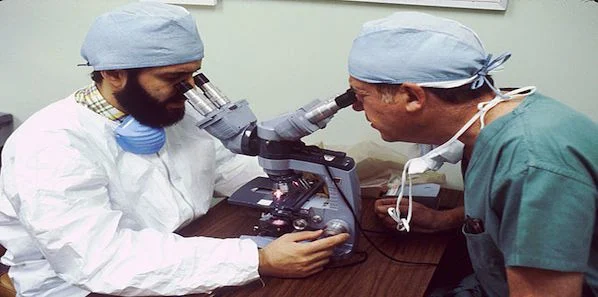A raft of evidence-based guidelines is set to be presented when the College of American Pathologists (CAP) convenes on 7-10 September 2014. Eight of those new guidelines are scheduled to be launched officially in January 2015, Medscape Medical News reported.
Evidence-based guidelines, which play an important role in improving working practices, are being drafted by relevant professional societies. During the CAP meeting, molecular testing guidelines for colorectal cancer and an algorithm to help with the initial workup in acute leukaemia will be presented.
The CAP meeting will also focus on the role of pathologists in accountable care organisations. With healthcare models shifting towards value-based care, it behooves pathologists to choose appropriate tests and limit unnecessary valuations in order to reduce medical costs. Meeting organisers have lined up several courses to address this topic and provide a forum for CAP members to share best practices.
Other major topics to be tackled during the convention include optimising the use of laboratory tests and empowering pathologists in the era of the electronic health record (EHR).
The new molecular testing guidelines for colorectal cancer are being drafted by CAP together with the Association for Molecular Pathology and the American Society of Clinical Pathologists. Test results will be used to guide epidermal growth-factor receptor (EGFR)-targeted therapies and conventional chemotherapy regimens.
Meanwhile, CAP is collaborating with the American Society of Hematology on the algorithm for the initial workup of acute leukaemia. Currently, there is variation in the way leukaemias are worked up across the United States. The algorithm is designed to help pathologists determine proper sample collection at the time of diagnosis and to identify key decision points that trigger appropriate test ordering.
Evidence-based guidelines on interpretive diagnostic error reduction through targeted case review, lower anogenital squamous terminology, and the principles of analytic validation in immunohistochemistry will also be presented in the upcoming CAP meeting.
In addition, a revised guideline on HER2 testing will include the first clinical trial on the effects of trastuzumab in the treatment of advanced gastric and gastroesophageal junction adenocarcinoma. Trastuzumab, although already approved by the US Food and Drug Administration for this indication, brings with it a challenge for the pathology laboratory to determine exactly which patients are eligible for this novel therapeutic option.
CAP president Gene Herbek, MD, said that a "new brand" will also be introduced to society members during the September gathering. The refreshed brand, he noted, "illustrates the essential role that pathologists play, through the delivery of laboratory medicine, in helping people live healthier lives."
Debra Leonard, MD, PhD, from the University of Vermont College of Medicine in Burlington, will be one of the speakers at the scientific plenary session entitled "Molecular Medicine: Can We Afford It?" Dr. Leonard, in an interview with Medscape Medical News, spoke enthusiastically about the upcoming CAP meeting. "We will be thinking beyond the pathology world to see how what we do improves and affects other things that physicians do."
Source: Medscape.com
Image Credit: Wikipedia
Evidence-based guidelines, which play an important role in improving working practices, are being drafted by relevant professional societies. During the CAP meeting, molecular testing guidelines for colorectal cancer and an algorithm to help with the initial workup in acute leukaemia will be presented.
The CAP meeting will also focus on the role of pathologists in accountable care organisations. With healthcare models shifting towards value-based care, it behooves pathologists to choose appropriate tests and limit unnecessary valuations in order to reduce medical costs. Meeting organisers have lined up several courses to address this topic and provide a forum for CAP members to share best practices.
Other major topics to be tackled during the convention include optimising the use of laboratory tests and empowering pathologists in the era of the electronic health record (EHR).
The new molecular testing guidelines for colorectal cancer are being drafted by CAP together with the Association for Molecular Pathology and the American Society of Clinical Pathologists. Test results will be used to guide epidermal growth-factor receptor (EGFR)-targeted therapies and conventional chemotherapy regimens.
Meanwhile, CAP is collaborating with the American Society of Hematology on the algorithm for the initial workup of acute leukaemia. Currently, there is variation in the way leukaemias are worked up across the United States. The algorithm is designed to help pathologists determine proper sample collection at the time of diagnosis and to identify key decision points that trigger appropriate test ordering.
Evidence-based guidelines on interpretive diagnostic error reduction through targeted case review, lower anogenital squamous terminology, and the principles of analytic validation in immunohistochemistry will also be presented in the upcoming CAP meeting.
In addition, a revised guideline on HER2 testing will include the first clinical trial on the effects of trastuzumab in the treatment of advanced gastric and gastroesophageal junction adenocarcinoma. Trastuzumab, although already approved by the US Food and Drug Administration for this indication, brings with it a challenge for the pathology laboratory to determine exactly which patients are eligible for this novel therapeutic option.
CAP president Gene Herbek, MD, said that a "new brand" will also be introduced to society members during the September gathering. The refreshed brand, he noted, "illustrates the essential role that pathologists play, through the delivery of laboratory medicine, in helping people live healthier lives."
Debra Leonard, MD, PhD, from the University of Vermont College of Medicine in Burlington, will be one of the speakers at the scientific plenary session entitled "Molecular Medicine: Can We Afford It?" Dr. Leonard, in an interview with Medscape Medical News, spoke enthusiastically about the upcoming CAP meeting. "We will be thinking beyond the pathology world to see how what we do improves and affects other things that physicians do."
Source: Medscape.com
Image Credit: Wikipedia
Latest Articles
Cancer, pathology, evidence-based guidelines, leukaemia
A raft of evidence-based guidelines is set to be presented when the College of American Pathologists (CAP) convenes on 7-10 September 2014. Eight of those...










